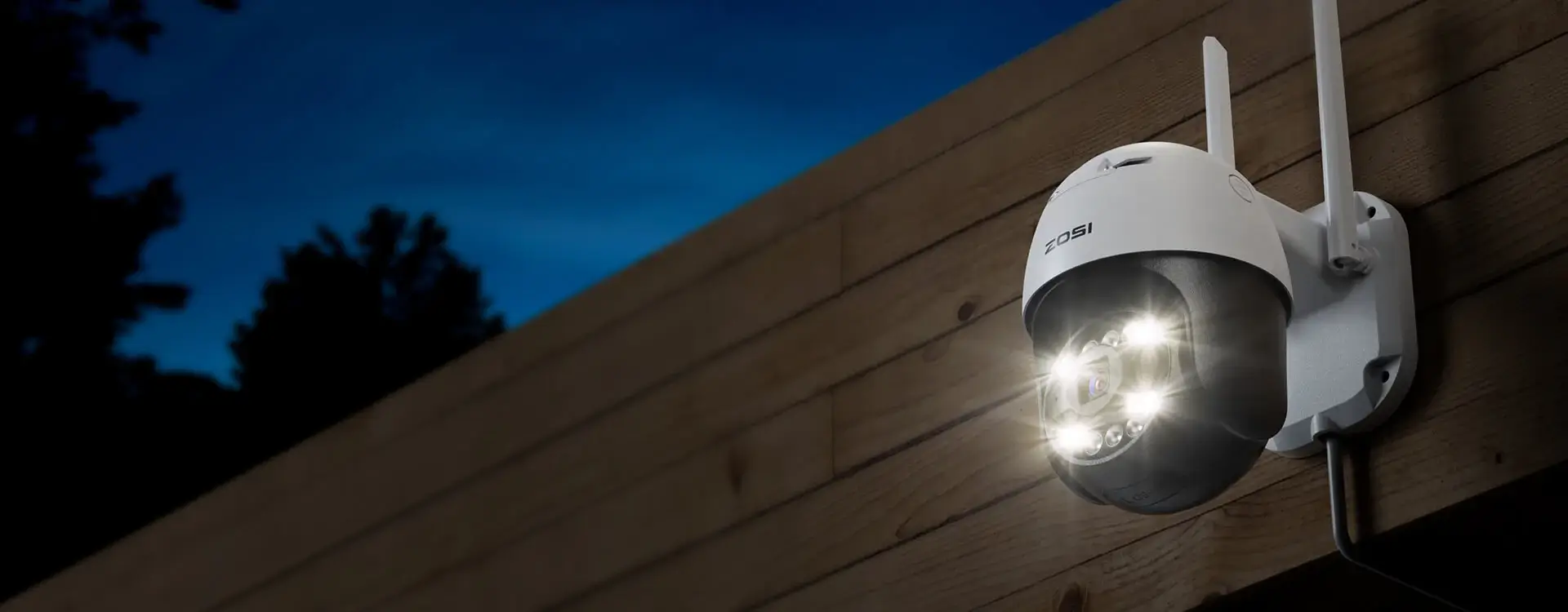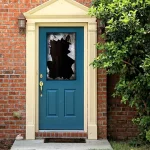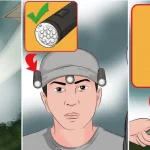Living next to difficult or disruptive neighbors can quickly turn into a nightmare, leading to constant stress and conflict. Dealing with inconsiderate, noisy, quarrelsome, or hostile neighbors is a common problem that requires tactful handling to maintain peace of mind and a harmonious community.
Our comprehensive guide covers a range of effective measures, including communicating with your neighbors with empathy and understanding, documenting instances of disturbances and noise pollution, reporting the issues to the appropriate authorities, and seeking legal recourse if necessary. These strategies can help resolve conflicts in a constructive and peaceful manner, empowering you to enjoy your home without disruptions while fostering a harmonious community.
Contents
Establishing Good Relations with Neighbors from the Start
When moving into a new neighborhood, take the time to introduce yourself to nearby residents and start on friendly terms. Being open, polite, and considerate can prevent many issues and pave the way for constructive conflict resolution. Consider welcoming new neighbors with a card or small gift, establishing a connection and setting a positive precedent.
Knowing your neighbors can provide context for understanding each other’s quirks and preferences, laying the foundation for building positive relationships and resolving conflicts successfully. Fostering a sense of community and giving neighbors the benefit of the doubt wherever possible can prevent tensions and help address issues more constructively when they arise.
Staying Calm, Rational, and Objective
Approaching the situation aggressively, emotionally, or accusatory will only exacerbate tensions, focusing on resolving specific issues rather than attacking the neighbor’s character or making assumptions about their motivations.
List concerns and suggestions in a neutral, non-critical tone, allowing them to address issues or explain their side. Sometimes, listening to their concerns and perspectives can help deal with problematic neighbors, improving relations and fostering a harmonious community.
Stay open-minded and collaborative, seeking to reach an understanding and resolution, allowing diplomacy and patience to prevail.
Clear and Open Communications
We understand the importance of effective communication, delivering expert strategies on how to communicate with rude neighbors effectively for optimized visual experience and security.
Our comprehensive guide provides expert advice on speaking directly and respectfully with the neighbor about concerns, preventing issues from escalating and fostering constructive dialogue. Writing a polite letter or knocking on their door to notify them of issues like noise late at night or garbage cans left out shows goodwill, allowing space for correction and avoiding pent-up conflicts.
Active listening is equally important; misunderstandings may be cleared up by better mutual awareness. Ongoing dialogue in a spirit of compromise, not condemnation, can turn a bad neighbor into a good one, promoting a harmonious community where everyone can thrive. When face-to-face discussions grow too emotional, suggest mediation to facilitate productive conversations, delivering effective conflict resolution.
Creating Clear Boundaries
Start by discussing your expectations directly yet diplomatically, backing up your requests with facts rather than accusations. For example, request that they avoid loud noises after a certain time, in accordance with local noise ordinances, or establish how close to the property line they can build fences or structures. Consider compromises where necessary, such as alternating usage of shared driveways or yards. By informing your neighbors precisely what kinds of conduct disturb you, you give them a fair chance to adapt to your needs and avoid potential disputes down the line.
Setting clear boundaries can set the stage for an amicable coexistence with your neighbors, and may even eliminate the need to consider extreme measures such as moving away.
Keep Your Property Safe
First and foremost, keep all gates, garages, and doors closed and locked at all times to prevent unauthorized entry. Consider installing lighting around the perimeter of your house, as well as motion sensor lights to deter trespassing. If privacy is a concern, consider an enclosed, fenced-in backyard.
For added protection, install security cameras at entrances or fences should the situation escalate. And don’t forget to secure your valuables inside your home, out of sight and out of reach of potential thieves. Removing valuables from cars and lawn equipment from the yard, and keeping windows closed at night can also help secure your property.
Pan Tilt Smart Detection Camera
- ZOSI C296
- 5MP Super HD
- Starlight Color Night Vision
- Pan & Tilt
- WiFi Connection
- Light & Siren Alarm
- Upgraded AI-Powered Detection
- 2-Way Audio
Investing in a Home Security System
By installing security cameras, you can create valuable evidence should neighbors step onto your property or engage in vandalism.
Video doorbells or intercoms help monitor who comes to the door and prevent unwanted visitors. Sensor-activated alarms can detect potential break-ins, keeping your home safe and secure.
And while away, 24/7 security camera coverage with remote home control options ensures continuous vigilance and peace of mind. Home security systems have a proven track record of deterring potential neighbor crime and providing the means to document and report offenses for legal action if necessary. In any confrontational situation, a professional home security upgrade is worth considering to ensure the highest level of protection for you and your loved ones.
4K POE Surveillance Cameras Security Monitor Systems
- Smart Person/Vehicle Detection
- Customize Detection Zone
- 4K Starlight Night Vision
- 24/7 Video & Audio Recording
- Access Remotely & Flexibly
- Two Way Audio
Document Important Incidents with Care
Protect your legal rights and interests by documenting any significant incidents involving problematic or harassing behavior from your neighbors. Keep a written record of dates, times, specific actions witnessed, damages, and any other relevant details, as this documentation serves as objective evidence in case of legal action in the future.
Detailed reports prevent distorted recollections and provide proof of harassment, and even apparently minor issues can become part of a larger pattern of objectionable activity over time. Audio or video recordings can also provide valuable documentation, provided they’re obtained legally and ethically. Establishing a clear record of incidents protects you from “he said, she said” disputes and provides evidence that can be used to protect your legal rights and interests.
Learn about Local Regulations and Laws
By understanding what practices are legally permissible, you can address any concerns with your neighbors with the appropriate legal background. This can help you effectively communicate with your neighbor while outlining any laws or HOA rules they may be violating. Providing specific references to laws adds weight to your requests for compliance.
In addition, knowledge of these regulations provides clarity around when engagement with mediators, police, lawyers, or other authorities may be necessary. Don’t assume that your neighbors are aware of all of the ordinances – a polite suggestion regarding local regulations can help educate them and bring resolution.
Seek Assistance from Neutral Mediators
If attempts to resolve conflicts directly with your neighbors prove unsuccessful, consider seeking assistance from a neutral mediator to facilitate discussions and suggest compromises. Mediators can be legal experts, religious leaders, community liaisons, counselors, or respected peers.
Outside mediators can help to ease tensions and foster progress where you may have been previously unsuccessful. Choosing mediation shows that you’ve made good-faith efforts to resolve the issue before taking legal action, which can be essential if the situation escalates.
Many neighborhood associations offer mediation resources or can connect you with professionals who can help resolve disputes. In mediation, be open to fair compromises, allow adequate time for the process, and don’t give up too quickly. Mediation can be an effective solution for dealing with difficult neighbors in a constructive and non-confrontational manner.
Seek Legal Advice
Neighbor disputes can be stressful, especially if they involve harassment, threats, or infringement of property or civil rights. Discussing options with a lawyer is an important step in resolving such conflicts. A lawyer can advise on legal action based on documented incidents, applicable laws, and likelihood of resolution.
If necessary, lawyers can guide you through the laws and procedures applicable to cease-and-desist orders, restraining orders, lawsuits, or criminal charges for the best resolution. Choose lawyers with experience in neighbor disputes and real estate laws to help you navigate through legal complexities.
It’s important to be aware of the costs involved in legal action and only pursue it as a last resort if the neighbor refuses to be accountable for their actions. Seek legal advice to avoid any legal ramifications and regain your peace of mind when dealing with an annoying neighbor and move towards a satisfactory resolution.
Call the Police
If a neighbor conflict reaches an emergency level, call the police right away. Contact the authorities if you experience or witness vandalism, trespassing, verbal abuse, intimidation, erratic behavior, violence, unauthorized surveillance, or any criminal activity. Police officers can respond to the location, make official reports, provide warnings, make arrests, and advise on the next steps to take to ensure the situation is handled swiftly and safely.
Having the police document the incidents also strengthens your case if you need to pursue legal action in the future. It creates an official record of the unacceptable behavior, which helps to serve as future evidence in your favor. Be sure to have the emergency numbers programmed in your phone and use them immediately if necessary. Your safety must be your top priority.
FAQs
How can I deal with bad neighbors?
Attempt polite but direct communication, compromise, reasonable boundaries, documentation, understanding your rights, and mediation. Consider security measures and involve legal or police if necessary. Avoid escalating conflicts and resorting to retaliation. Focus on specific issues and resolution to overcome or manage neighbor problems.
Can security cameras be used to handle difficult neighbors?
Yes, installed properly, security cameras can help to handle bad neighbors. It deters crimes against your property and provides video evidence of disturbances, vandalism, or trespassing. Using security cameras is a good solution to deal with a crazy neighbor and ensure property security.
What should I do if my neighbors are fighting?
Loud, aggressive fights between neighbors should not be ignored. Politely encourage them to resolve differences calmly, or offer to mediate if you have a trusting relationship. Advise involving the police if physical violence seems likely. Report domestic violence or register a noise complaint to authorities if local ordinances are violated.
Conclusion
Dealing with difficult neighbors may be challenging, but taking proactive measures can help defuse tensions and protect your property from external disruptions. Establishing clear boundaries, documenting incidents, understanding regulations, and conflict resolution strategies can go a long way in handling hostile neighbor situations.
Approaching the situation with an open and diplomatic mindset is essential. Focus on specific issues and resolution to overcome or manage neighbor problems. Consider using security measures for added protection and involve legal or police assistance when necessary.







